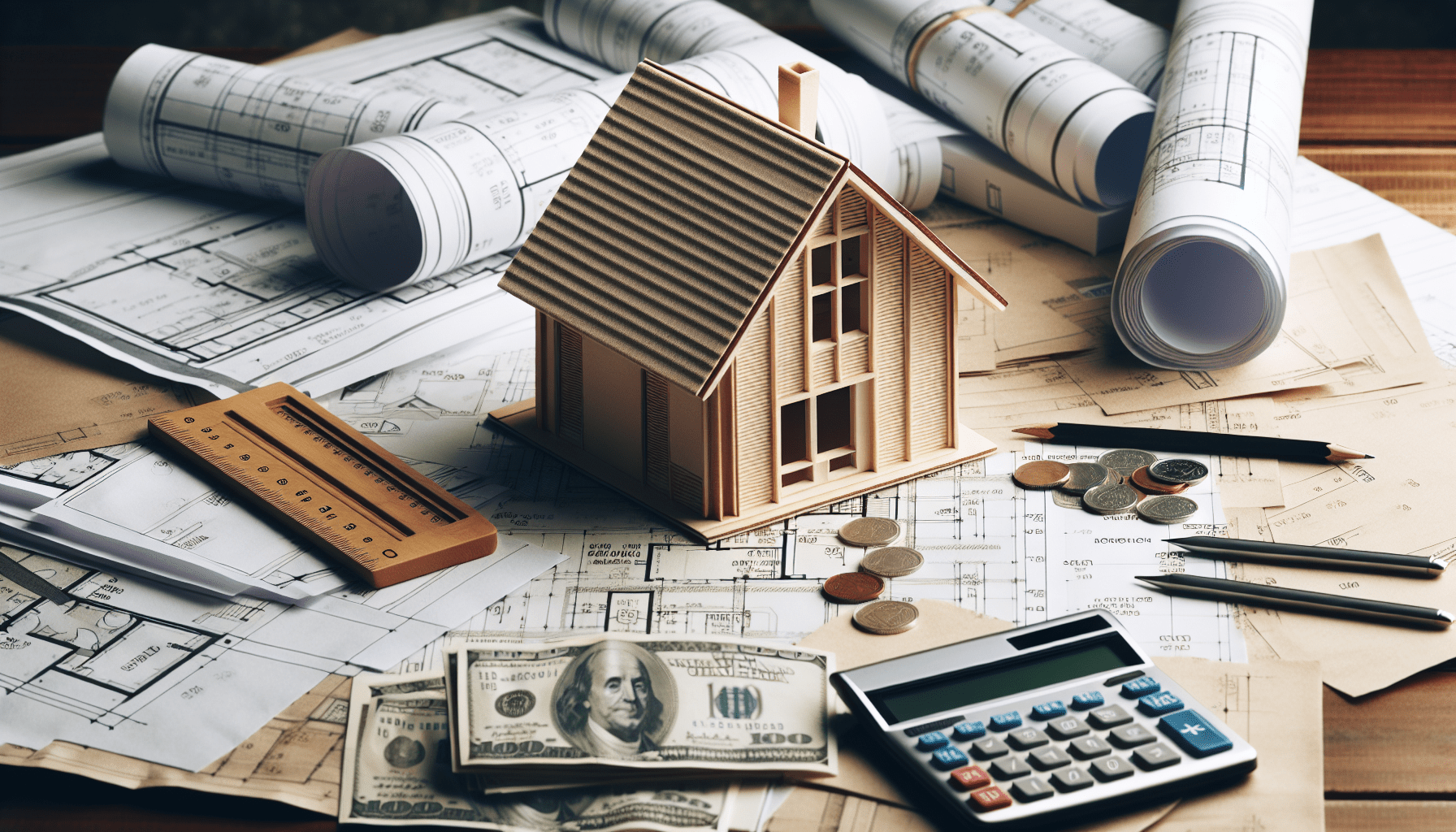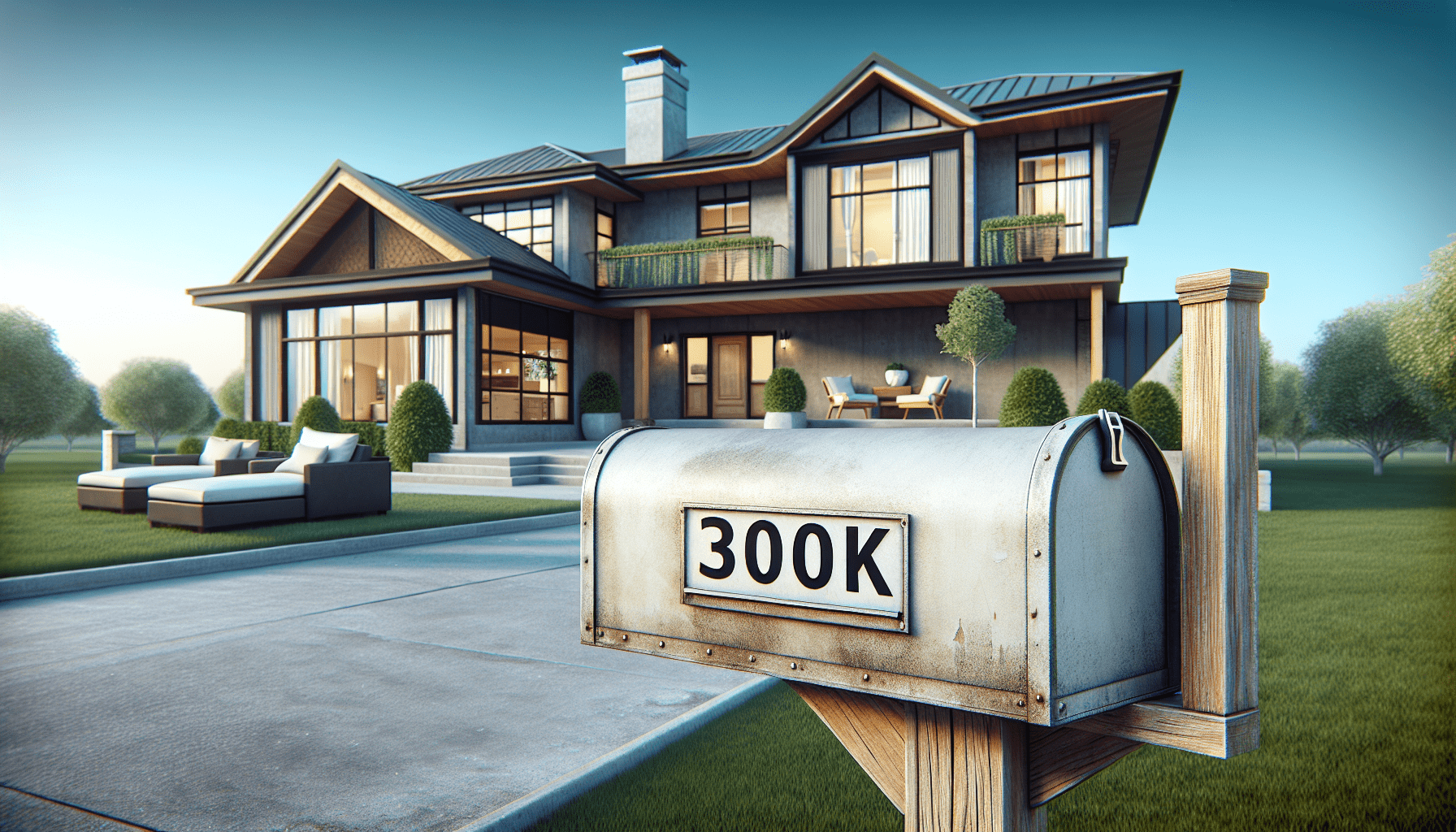How Do You Know If You Have Enough Money To Build A House?
October 17, 2024 | by neoguruman@gmail.com

Have you ever found yourself daydreaming about building your perfect home? It’s an exciting prospect, but before you start picking paint colors and floor plans, you might begin to wonder: do you have enough money to turn that dream into reality?
Understanding the Costs of Building a House
When it comes to building a house, the costs can vary widely based on numerous factors. Understanding the detailed breakdown of expenses involved can give you a clearer picture of whether you have sufficient funds available.
Direct Costs of Home Construction
The direct costs associated with home construction include materials, labor, permits, and more. Here’s a quick breakdown:
| Expense Type | Description |
|---|---|
| Land Purchase | Cost of buying a plot of land for construction. |
| Building Materials | Costs for wood, concrete, roofing, etc. |
| Labor Costs | Wages for workers including contractors, electricians, and plumbers. |
| Permits and Fees | Legal fees and permits required for construction. |
| Utility Connections | Initial setup costs for water, gas, and electricity. |
| Landscaping | Final touches to your property’s exterior. |
Indirect Costs to Consider
Beyond direct costs, there are indirect costs that you may overlook initially but can significantly impact your budget. These include:
- Project Management: If you hire someone to manage your construction, this will add to your expenses.
- Design Costs: Hiring an architect or designer may be necessary to create a custom home plan.
- Insurance: Building insurance protects your project from unforeseen circumstances.
- Contingency Fund: It’s wise to set aside a contingency fund, typically 10-15% of your total budget, for unexpected expenses.
Assessing Your Financial Situation
Before launching into construction, it’s crucial to assess your financial standing comprehensively. This will help you determine how much you can afford to spend.
Savings and Liquid Assets
Begin by compiling your savings and liquid assets. How much do you have available to contribute? Consider:
- Savings Accounts
- Investment Accounts
- Other Liquid Assets like bonds or stocks that can be easily converted to cash.
Income and Employment Stability
Your current employment situation significantly affects your ability to fund a home construction project. Lenders will look closely at your income and job stability. Consider your:
- Monthly Income: Calculate your net income after taxes.
- Job Security: Are you in a stable role, or is your position subject to changes?
Debt-to-Income Ratio
Lenders will also consider your debt-to-income (DTI) ratio. This figure helps them understand how much of your income is already allocated to debt repayment. A lower DTI ratio is favorable and could increase your chances of obtaining financing for your construction project. To calculate your DTI:
- Total monthly debt payments (including mortgage, credit cards, student loans).
- Divide this figure by your gross monthly income.
- Multiply by 100 to get a percentage.
Credit Score
Your credit score is another essential element that lenders will analyze. A higher credit score often results in lower interest rates on loans, which can save you money in the long run. Consider checking your credit report and addressing any issues if necessary.
Construction Loans
You may be wondering what kind of financing options are available to help you build your home. Construction loans are specifically designed for this purpose.
Types of Construction Loans
There are a few different types of construction loans you might consider:
1. Construction-to-Permanent Loans
These loans are converted to a permanent mortgage once construction is complete. It simplifies the financing process and can be a good option if you plan to stay in your new home long-term.
2. Stand-Alone Construction Loans
With this type, you’ll take out a loan solely for construction. You’ll then need to secure a separate mortgage once your home is built. This route can be riskier as you’ll need to qualify for both loans independently.
3. Owner-Builder Loans
If you are planning on managing your own construction project, this loan type may suit you. However, lenders typically require owner-builders to have significant construction experience.
Interest Rates and Terms
Before committing to a construction loan, look into the interest rates and terms. Generally, construction loans have higher interest rates than conventional mortgages. Make sure you understand the repayment schedule and any additional fees associated with the loan.
Budgeting for Your Home Build
Creating a detailed budget is essential when determining whether you have enough money to build your house.
Sticking to Your Budget
Once you have a preliminary budget created, review it frequently to ensure you’re sticking to it. Building a house is unpredictable, and costs can easily spiral out of control. Identify potential pitfalls and adjust your budget as necessary.
Managing Change Orders
Change orders are requests to modify a previously agreed-upon component of construction. While you may want to personalize aspects of your house, frequent change orders can add up quickly. Make decisions carefully to avoid going over budget.
Evaluating Cost Estimates
Consulting with builders to get detailed cost estimates can give you a more precise understanding of your expenses. Be sure to compare multiple estimates to find the best option.
Understanding Builder Estimates
When reviewing builder estimates, ensure you’re looking at a breakdown that includes all elements of the construction process. This will help you identify any additional costs that may arise.
Hidden Costs
Many costs might not be included in initial estimates, so it’s essential to anticipate potential hidden fees. Some examples include:
- Soil Testing: Ensure your land is appropriate for construction.
- Impact Fees: These may apply based on your new home’s location.
- HOA Fees: If your home is in a community with a homeowners association, this can significantly affect your budget.
Is Your Location Right?
The location of your intended property can also influence the overall costs of building a home.
Real Estate Market Conditions
Understanding your local real estate market conditions can help you determine if now is the right time to build. If property prices are rising, it may be wise to act sooner than later. Conversely, if prices are dropping, a waiting period might be prudent.
Local Building Codes and Regulations
Each region has its own building codes and regulations that may add costs to your project. Always familiarize yourself with local rules to avoid potential fines and delays.
Additional Considerations for Building a Home
Building a home is more than just financial commitments; there are also personal and lifestyle aspects to think about.
Personal Preferences
Consider your unique preferences and lifestyle needs when determining if you can afford to build. This may include factors like:
- Size of the Home: Larger homes typically cost more to build.
- Style and Materials: Custom designs and high-quality materials can significantly increase your budget.
Future Resale Value
If you ever plan to sell the home, keep the resale value in mind. Choosing trendy designs or high-quality materials can appeal to future buyers, allowing for a potential return on investment.
Conclusion: Are You Ready to Build?
The journey to building your home requires careful consideration of your financial situation and the various costs involved. By understanding what is required and evaluating your resources effectively, you can help ensure that you have enough money to build successfully. As you ponder your dream home, remember that proper planning and budgeting are critical components of the process. Now that you have a clearer understanding, are you ready to move forward with your dream?
RELATED POSTS
View all


